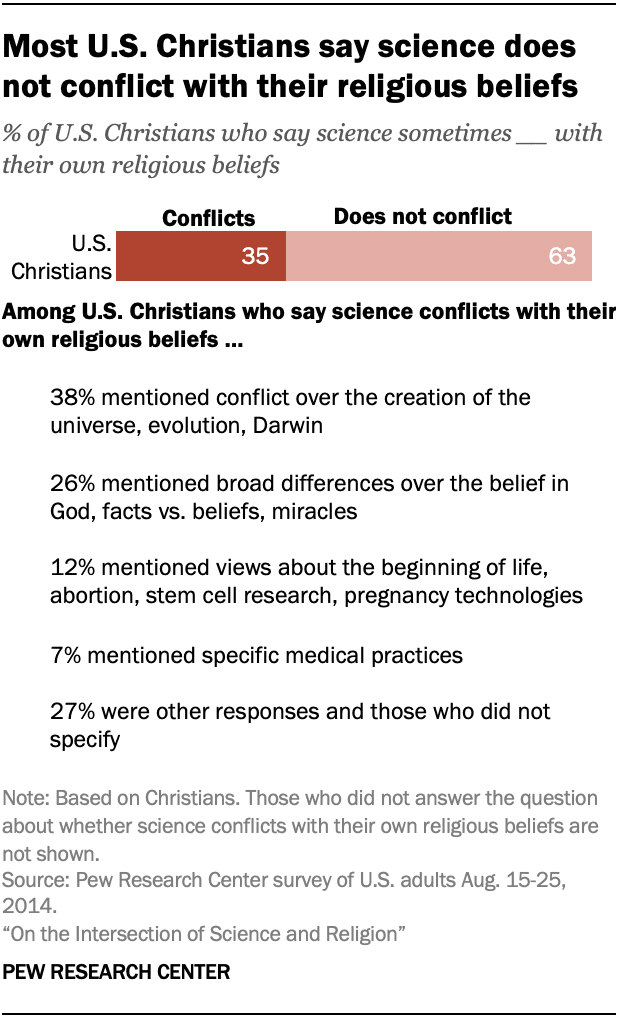Religion and science have had an ongoing debate for centuries, with many people believing that the two cannot coexist. However, there are many examples that show that religion and science do not have to conflict. The examples include the Big Bang theory, evolution, medicine, astronomy, ethics, psychology, environmentalism, history, art, and personal beliefs. These examples show that both fields can complement each other and provide a fuller understanding of the world around us. By recognizing the common ground between religion and science, a more harmonious view of the world and humanity’s place in it can be achieved.
Why Religion and Science Do Not Have to Conflict: 10 Examples
For centuries, the debate between religion and science has been an ongoing one. Many people believe that the two cannot coexist, and that they are polar opposites. However, there are many examples that show that religion and science do not have to conflict. In fact, these two fields can complement each other in many ways. Here are ten examples:
1. The Big Bang
The Big Bang theory is widely accepted by scientists as the explanation for the origin of the universe. Many people believe that this theory conflicts with religious beliefs about creation. However, the Catholic Church has accepted the Big Bang theory since 1951. In fact, a Catholic priest and mathematician, Georges Lemaitre, proposed the theory in the first place.
2. Evolution
Another hotly debated scientific theory is evolution. Many religious believers think that evolution conflicts with the idea of creation. However, Pope Francis declared in 2014 that evolution and the Big Bang theory are real, and that they do not contradict the Bible.
3. Medicine
Medical science has made great strides in the past century, and many of the treatments and procedures come directly from scientific research. However, many religious people believe that prayer and faith can also help in healing. In fact, studies have shown that religious patients have better outcomes after surgery than non-religious patients.
4. Astronomy
Astronomy is one of the oldest scientific fields, and it has often been associated with religious beliefs about the stars and planets. Today, religious institutions often have observatories and support scientific research in astronomy.
5. Ethics
Many religious people believe in moral and ethical values, and science can help to back up these beliefs. For example, scientific studies have shown that honesty and kindness are good for mental health and social harmony, which are values that are also shared by many religions.
6. Psychology
Psychology is another scientific field that can complement religion. Many religions have teachings about the nature of the human mind and how to achieve happiness and inner peace. Psychology can help to explain some of these teachings in scientific terms.
7. Environmentalism
Caring for the planet and the environment is a value that is shared by many religions. Scientific research can help to inform environmentalists about the current state of the planet and what can be done to protect it. Many religious institutions also support environmental causes.
8. History
History is a field that can sometimes cross over into religious beliefs, especially when studying ancient civilizations and their religious practices. Historians often work with religious texts and beliefs to gain a better understanding of the past.
9. Art
Art has often been associated with religion, with many religious traditions producing stunning works of art. Today, many artists are inspired by scientific discoveries and use them as a source of inspiration for their work.
10. Personal Beliefs
In the end, whether religion and science conflict depends on personal beliefs. Both fields have the potential to complement each other and provide a fuller understanding of the world around us. Personal beliefs and experiences can shape how we view these fields and how we integrate them into our lives.
Conclusion
These examples show that religion and science do not have to conflict. While some people may see them as opposite ends of a spectrum, both fields have important contributions to make to our understanding of the world. By recognizing the common ground between religion and science, we can work towards a more harmonious view of the world and humanity’s place in it.
